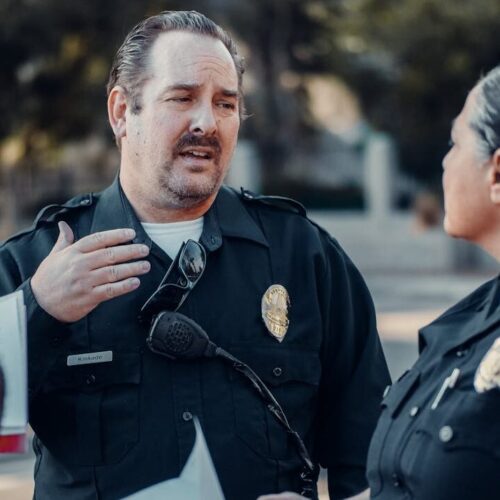By Angela Tolosa, Deputy Director for Constituent Relations, Reentry
On July 10, the Federal Communications Commission (FCC) held a daylong workshop in Washington, D.C., to explore reforms on prison telephone calls. The first of its kind for the FCC, the workshop brought together more than 100 family members of prisoners, advocates, and state regulators from across the country while thousands more participated online.
“I believe that we must do everything we can to ensure a reasonable mechanism for families to stay in touch with their loved ones during this separation,” said FCC Acting Chairperson Mignon Clyburn. “Ensuring that the costs of prison payphone calls are reasonable will enable meaningful progress toward that goal.” Ms. Clyburn is leading the commission’s effort to lower interstate long distance rates from prisons.
The issue first came to the FCC’s attention in 2003 when a Washington, D.C.-area woman, Martha Wright, said she was paying about $200 a month for one 15-minute phone call a week with her grandson, who was in prison. Civil rights groups filed a class-action suit on her behalf; the courts dismissed the case and Wright was referred to the FCC.
For more than a decade, the FCC has received complaints from family members of prisoners about the high cost of telephone calls to loved ones in prison. According to the NY Times, prison calls are so expensive because inmates must place them through independent companies that pay the state corrections departments a “commission,” essentially a legal kickback.
“In some instances, the price of a single phone call from prison eclipses the cost of an average basic monthly telephone bill,” explained Ms. Clyburn. “In 42 states where there have been limited or no reforms, connection fees can run as high as $4 per call, on top of charges of 89 cents per minute.”
These high rates often prohibit low-income families from having regular contact with incarcerated loved ones. Maintaining relationships between prisoners and family members, especially their children and spouses, promotes rehabilitation and reduces recidivism. And given that 2.7 million children in the United States have at least one parent in prison, making these calls affordable is imperative to keep families together and to help individuals successfully reintegrate into society.
“With 700,000 individuals released every year from these institutions, it is crucial that we do whatever we can to strengthen family ties before these individuals return home,” Ms. Clyburn stressed in a recent statement.
Congressman Bobby Rush (D-IL) and Congresswoman Eleanor Holmes Norton (D-DC) also attended the workshop and spoke about the implications of high prison telephone rates for their constituents. Congresswoman Norton announced, “To put somebody away for many years with no way to communicate with the ones who care about him or her is to assure a very difficult time for what is already a very difficult effort—to reintegrate into society.”
New Hampshire Department of Corrections Commissioner Helen Hanks presents at the Medicaid and Corrections Policy Academy in-person meeting.
Read More Meet the Medicaid and Corrections Policy Academy Mentor States
Meet the Medicaid and Corrections Policy Academy Mentor States
New Hampshire Department of Corrections Commissioner Helen Hanks presents at the Medicaid and Corrections Policy Academy in-person meeting.
Read More Key Findings and Recommendations from Kentucky’s Justice Reinvestment Initiative to Better Understand and Address Domestic Violence
Key Findings and Recommendations from Kentucky’s Justice Reinvestment Initiative to Better Understand and Address Domestic Violence
Almost half of all violent crime in Kentucky is rooted in domestic violence (DV), and nearly 40 percent of people incarcerated in jails and prisons have a history of DV in their background.
Read More Explainer: Key Findings and Options from Arkansas’s Justice Reinvestment Initiative
Explainer: Key Findings and Options from Arkansas’s Justice Reinvestment Initiative
Arkansas policymakers have long expressed concerns about the state’s high recidivism rate. Over the past 10 years, an estimated 72 percent of prison admissions in the state involved people who were revoked from supervision, with unmet substance use and mental health challenges playing a significant role in these failures.
Read More












